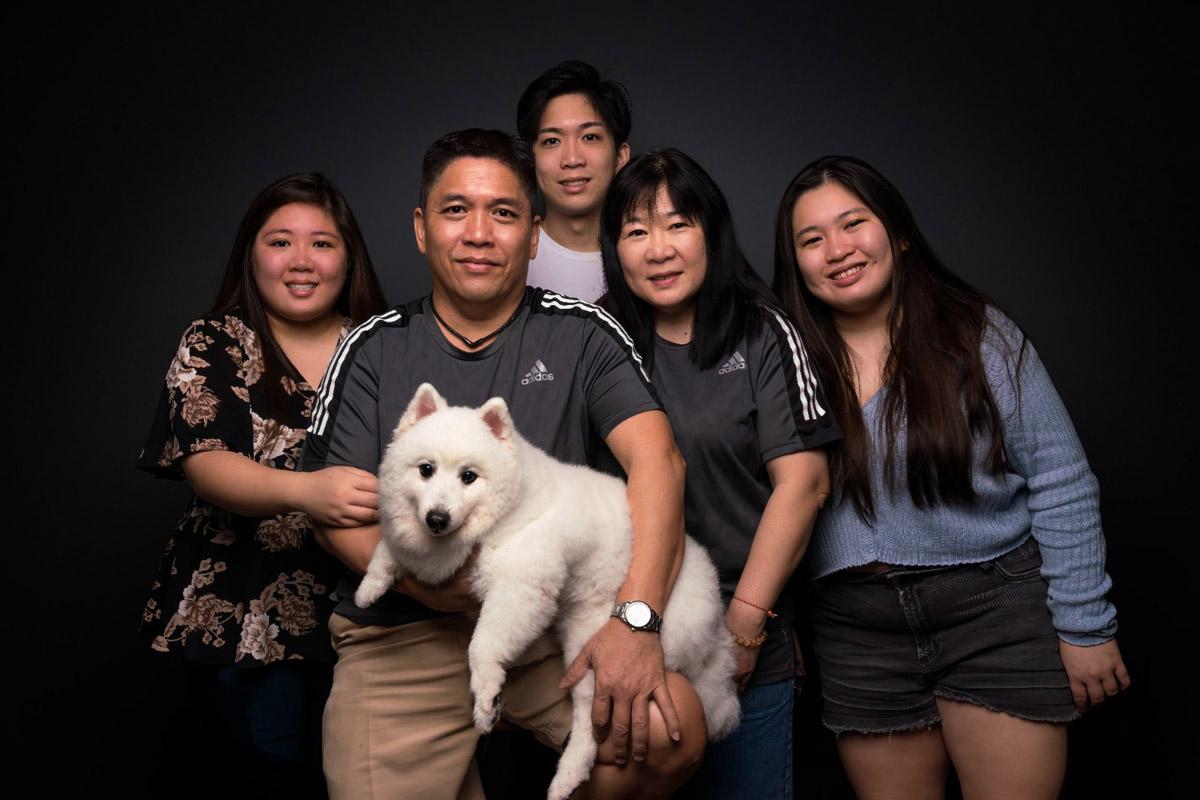As pet owners, we’re sure most of you regard your fur buddies as more than just a pet. Some of you may consider your four-legged animal a friend, while the others may think of their furry creatures as their precious baby. Regardless of which category you belong to, we’re sure all of you can relate to wishing that your precious fur buddies do not experience any pain. After all, if our furries were to go through any pain, the agony we feel would be ten times worse.
Hence, when we heard that Dee was diagnosed with a hereditary luxating patella issue, we immediately assumed his owner would be overwhelmed with sadness. However, despite the diagnosis, Nga Kei remained optimistic, stating that being upset will not change his condition. Instead, she focused her energy on treatments to prevent Dee’s condition from worsening. But before we delve into Dee’s story, let’s first find out who Dee is.
Who is Dee?
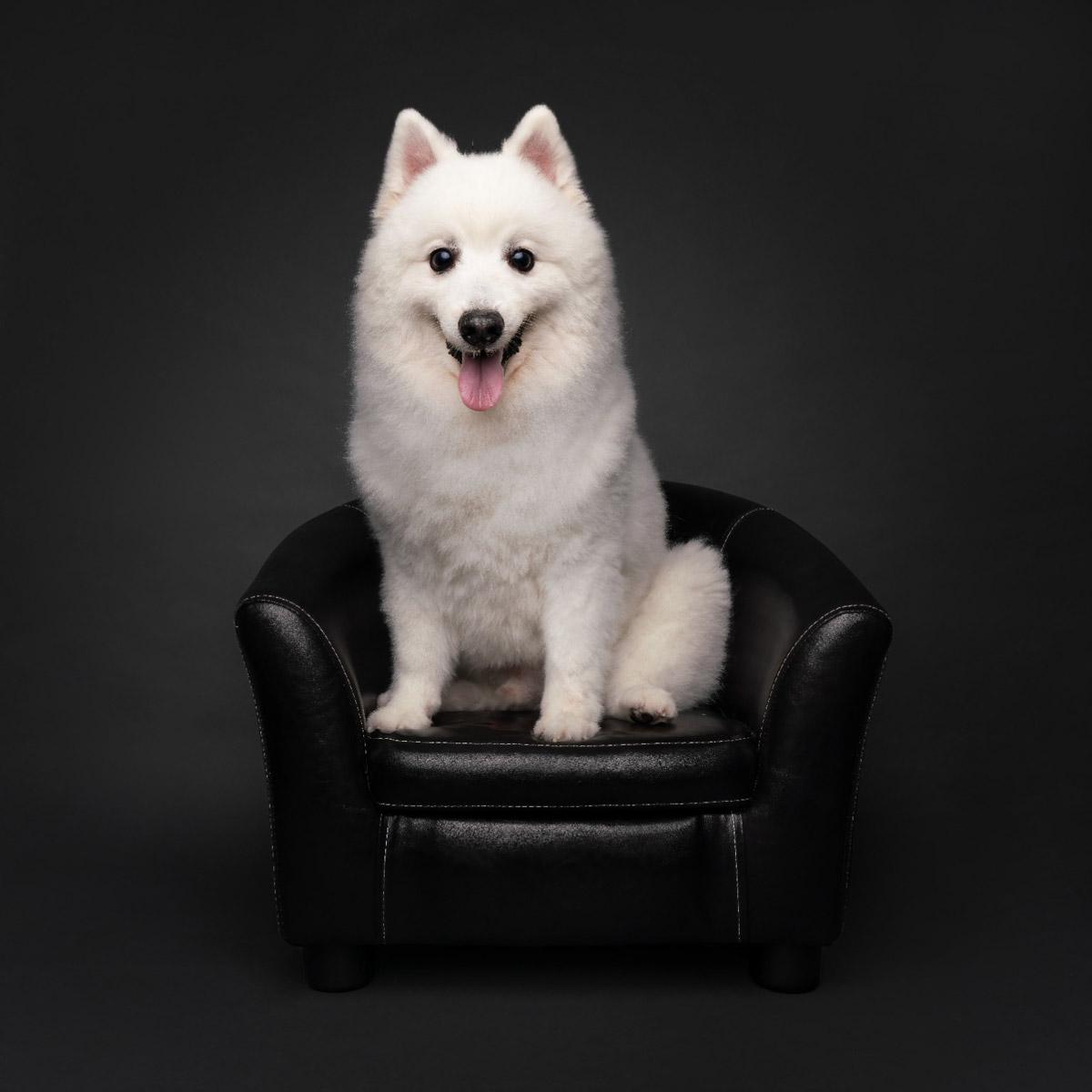
Dee is a Japanese Spitz who rocks a gorgeous, pearly white coat. At 11 years old, he has sadly gone through multiple adoptions, but, thankfully, he is now united with a family that loves and cherishes him. Like most Japanese Spitz who are protective of their human families, Dee is considered a peacemaker in his home. Needless to say, his efforts to stop fights and ease tension in the house is Nga Kei’s favourite characteristic of Dee. Plus, he is extremely cheeky and has a cute smile, so it is almost guaranteed that a grin will form on your face when you meet him. However, behind the facade of this cheerful pooch lies an incredibly painful condition.
His Diagnosis
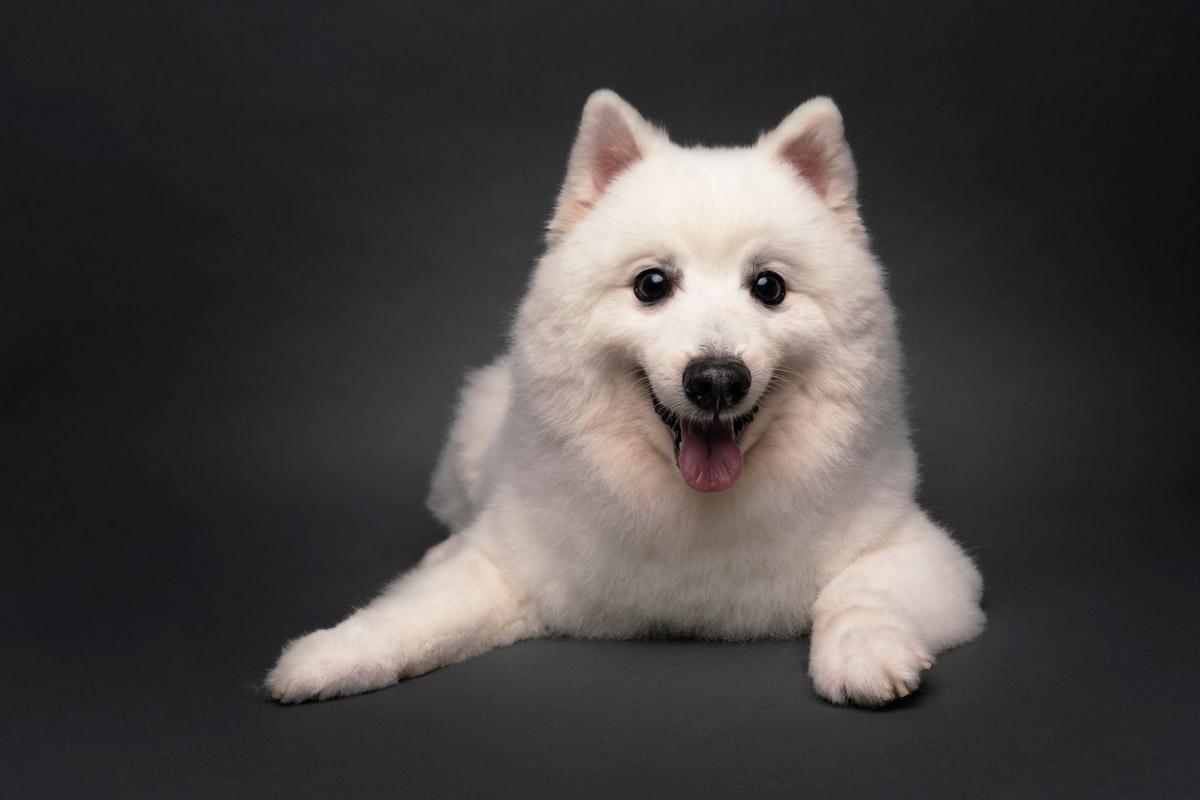
When a cute dog like Dee enters your family, it is easy for his cuteness and bubbly attitude to capture our full attention. It is not very often that we, as pet parents, notice any peculiarities in our dogs right from the beginning. Thankfully for Dee, Nga Kei is a very attentive pet parent. Right from the start when Dee joined the family, the way he walked raised some eyebrows. The family immediately noticed that Dee’s walk was quite unusual since his paws are pointing outwards. However, it was only when they had brought Dee to the vet for another issue that they found out that he had a luxating patella.
But what exactly is a luxating patella?
The term ‘luxating’ essentially means dislocated, while ‘patella’ refers to the kneecap. So, luxating patella literally means a dislocated or out-of-place kneecap. When asked to describe what this condition is, Nga Kei explains that the kneecap basically moves in and out of the grove causing Dee to limp for a few steps before resuming his normal gait.
While trauma to the knees can cause dislocation, a luxating patella is more commonly hereditary in nature. This is precisely the case for Dee. Fortunately, since Dee was already born with this ailment, his bone structure has already formed around this condition. Thus, his current situation is still manageable, and surgery is not yet required.
However, a luxating patella can lead to abnormal movement and stress in the knees resulting in early arthritis. Based on previous experience with her other dog, Nga Kei knew how painful arthritis can be. Therefore, she understood that early treatment was necessary to prevent Dee’s condition from deteriorating.
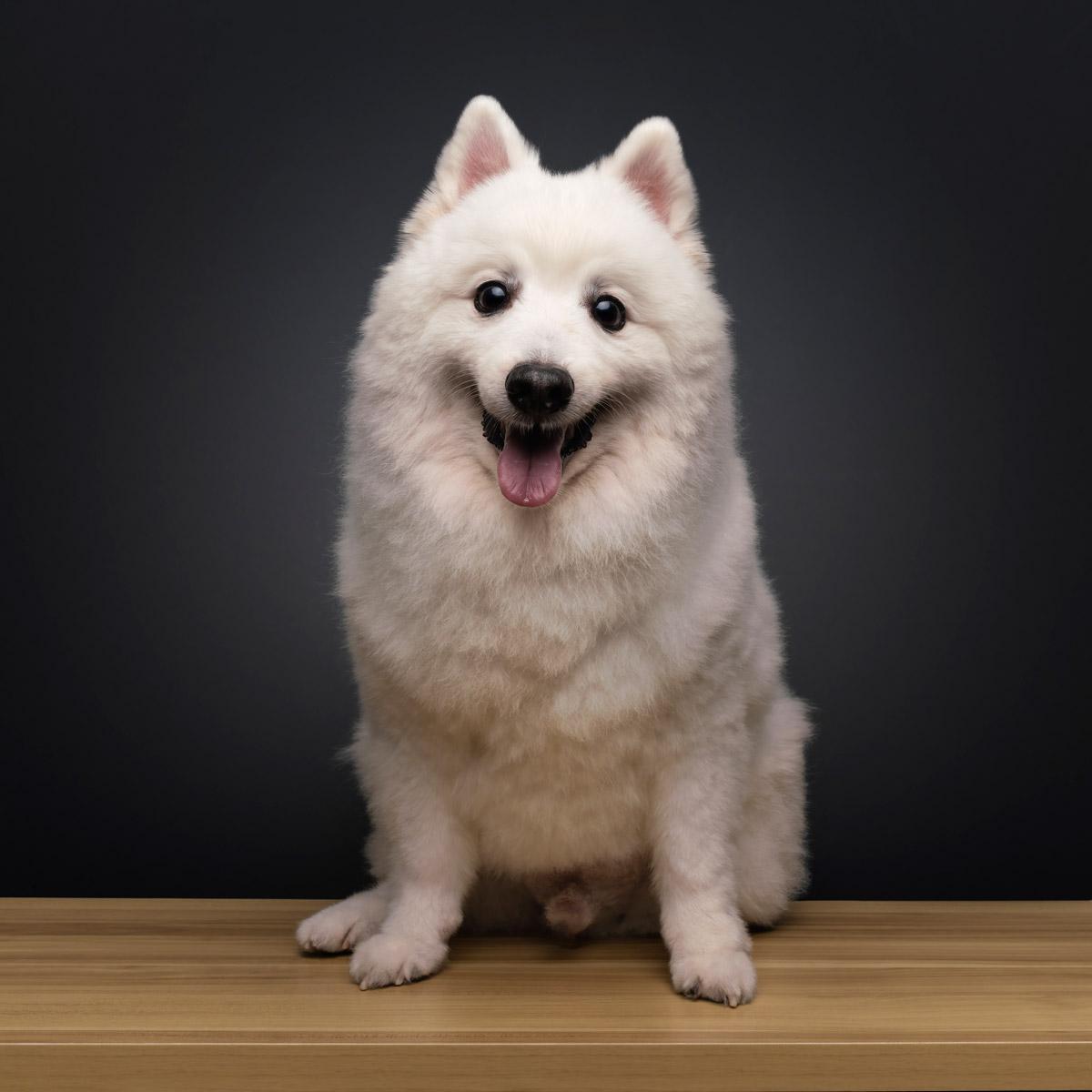
The Road to Recovery
Upon hearing that the worsening of Dee’s ailment can lead to early arthritis, the first thought that emerged in Nga Kei was that they must start treatments for Dee’s joints.
1. Taking shorter walks
In order to help Dee with his condition, Nga Kei brought Dee on regular short walks instead of a full long walk. Having short walks can be effective in training and building strength in Dee’s back legs. Avoiding long walks is also essential to prevent excessive pressure and strain on the joints.
2. Swimming
Additionally, Dee also began swimming! To ease the tension on the joints, weight management may be helpful. But, since exercising via running or walking is not too viable in this case, there’s no better exercise than swimming. Swimming helps distribute the body weight evenly hence alleviating any tension on the joints while also training the legs.
Although Nga Kei was told that Japanese Spitz’s are usually not good swimmers, to her surprise, Dee fell in love with swimming immediately. After being placed in the water, he immediately started paddling and enjoying himself! Besides being a fun activity for Dee, swimming strengthens his leg muscles which in turn helps to support his joints.
3. Joint supplements
On top of the shorter walks and swimming, Dee started taking Antinol as well. Back in 2018, Nga Kei came to know of Antinol after the vet gave her samples for her other dog’s arthritis. Seeing the positive effects Antinol had on her other dog, Nga Kei decided to feed Dee the same supplement after discovering his luxating patella issue. Furthermore, Antinol is easy to feed as well! Although Dee was initially unsure of its texture, he eventually came to enjoy taking Antinol.
What has changed?
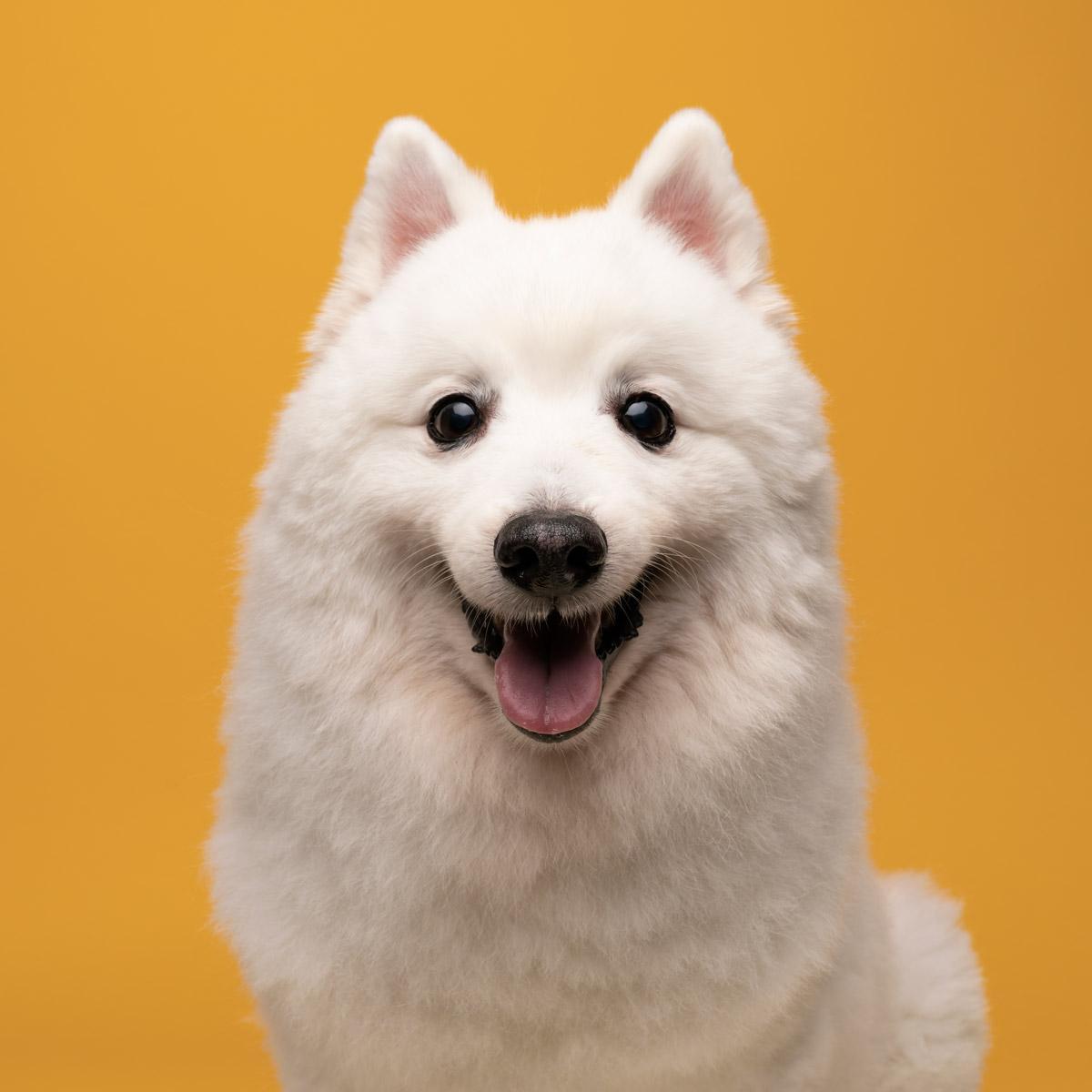
There is nothing more exasperating than undergoing treatments only for it to not work. Fortunately, Dee’s quality of life has seen a tremendous improvement ever since Antinol was introduced into his routine.
Prior to taking Antinol, Dee’s walks can never be longer than 15 minutes. Due to the strain in his joints, constant breaks are needed whenever he goes on walks. Nga Kei even had to resort to bringing a stroller or a wagon out so that they can put Dee in it when he gets tired.
The inconvenience of having to manage Dee while also carrying a wagon was significantly reduced when Dee started on Antinol. Now, Nga Kei no longer has to carry a wagon out for walks. In addition, Dee can now enjoy walks that last as long as an hour! Unlike previously where he had to take constant breaks, Dee is now able to make a to and fro easily. With stronger legs and better mobility, Dee can now comfortably go on walks, smell the grass and have fun.
Not only did Antinol create a more pleasant walking experience for Dee, but it has also allowed Nga Kei to enjoy a walk with Dee without the weight of a wagon: a win-win!
The positive effects of Antinol on Dee is certainly undeniable. Nga Kei has placed such immense faith in Antinol, so much so that she had even recommended Antinol to her aunt! Like Dee, her aunt’s poodle also has a patella issue that needed surgery. So, seeing the improvement Dee had after taking Antinol, there is hope that Antinol can help enhance the mobility of her aunt’s poodle.
Writing Dee’s Future
We as humans can’t ensure that our lives will go on without an ounce of sickness. Therefore, it is quite unrealistic to think that we can guarantee that no harm or pain befalls our fur babies. However, while we can’t completely deter our pets from feeling pain, the key is early intervention. Just like how Nga Kei started early treatments for Dee to reduce the risk of early arthritis, you too can prevent your pooch from enduring further pain.
We asked Nga Kei what she would say to Dee if he could understand her, and this was what she said: “we can’t change your past, but we can rewrite your future. We know it is scary and upsetting to have changed many owners, but we want you to know that we are your family now, and no matter what, family will always stay with you”. With this incredibly touching statement, we hope that all of you can write your pooches’ future by taking the pain of their past away.

